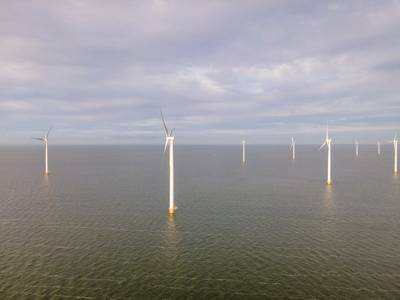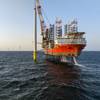US Offshore Wind Sector Faces Key Test After Weak Gulf Auction
The low interest in the first-ever auction of offshore wind farm development rights in the Gulf of Mexico marks a potentially serious setback for U.S. President Joe Biden’s green energy agenda, and the U.S. offshore wind sector in general.
U.S. officials had touted the auction as a key milestone in Biden’s agenda to make offshore wind a cornerstone of U.S. efforts to fight fossil-fuel-driven climate change.
But with only a single bid of $5.6 million emerging for the rights to 102,480 acres (41,472 hectares) off Louisiana, and two other offered leases receiving no bids at all, it is clear that wind farm developers are less enthusiastic than the Biden administration about the development opportunities on offer.
The Gulf of Mexico leases were always going to struggle generating as much developer interest as seen in previous auctions for leases off the U.S. Northeast coast, as the Gulf waters are shallower, more congested, have lower overall wind speeds and face regular hurricane risks.
Even so, the total lack of interest in two leases off the coast of Texas marks a potentially critical blow to energy planners hoping that offshore wind farms would help the country’s largest power-consuming state accelerate its transition away from fossil fuels.
More broadly, the meager interest shown in the Gulf leases clearly indicates that wind developers themselves remain prudent with regard to U.S. project potential, even with the slew of incentives offered in the Inflation Reduction Act to support green energy supply development.
Rethink needed for the Gulf?
In addition to lower wind speeds and hurricane risks, potential wind farm developers in the Gulf waters must also accommodate relatively lower local power market prices than other parts of the United States, which greatly undermines wind power earning potential in the region.
As offshore wind power systems are still in their relative infancy compared with other power sources, the average cost of power generated from offshore sites can be twice the cost of that from a gas-fired plant.
To aid wind developers off the U.S. East Coast, New York and New Jersey passed state laws that require utilities to buy certain amounts of power from offshore projects, which guarantees earnings for wind developers as they continue to roll out capacity in that area.
A similar power purchase mandate may be considered in U.S. Gulf Coast states, though the large and influential oil and chemical industries in Texas and Louisiana are likely to resist any power cost increases that could undermine their competitiveness.
That said, those same industries are major potential consumers of green hydrogen, which can be produced using renewable power and act as a source of energy for refiners and chemical plants looking to decarbonize.
Without a viable offshore wind sector, those industries may now struggle to secure the quantities of green hydrogen they may be anticipating in coming decades, and so could look for ways to support the wind sector’s development in the years ahead.
Supply-chain kinks
Beyond the local challenges in the Gulf of Mexico, the offshore wind sector has faced global headwinds in recent months due to rising materials and labor costs that have lifted project development expenditures well above anticipated levels.
In turn, these cost overruns have forced some developers to cancel or renegotiate power contracts in other regions, and made many players in the industry hesitant to expand into markets that lack a clear path to profitability.
That general hesitancy was on full display in Tuesday’s Gulf auctions, where 15 companies had been qualified to make bids, including global giants with major wind divisions Equinor, Shell and TotalEnergies.
Many of those majors are already building out offshore capacity elsewhere in the United States, and so may revisit the Gulf of Mexico as an area for potential expansion in due course.
But given the urgency of global energy transition efforts, the Biden administration and key stakeholders along the Gulf Coast may need to come up with additional incentives to lure wind power developers to the area, or risk losing critical energy sector development momentum to other markets. The opinions expressed here are those of the author, a columnist for Reuters.
(Reuters - Reporting by Gavin Maguire; Editing by Matthew Lewis)
(The opinions expressed here are those of the author, a columnist for Reuters.)











